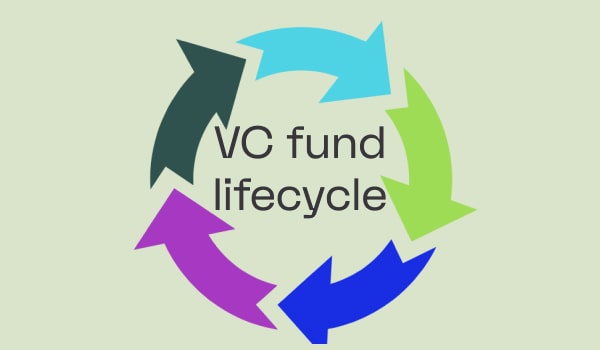The financial wilderness today presents a fascinating race: on one side, we have the venture capital (VC) firms — speedy, agile, and always on the lookout for the quickest route to profits. On the other hand, we have family offices — who are more like endurance hikers, equipped for long journeys, focusing on the horizon with generational wealth in mind.
So, let’s delve a little deeper and understand how these differences shape their individual operational tactics and tech requirements.
Core philosophies and operational differences between venture capital and family offices
Family offices, with control of over more than $6 trillion globally (yes, that's more than PE and VC assets combined!), have become heavyweight contenders in markets where VC and PE firms once reigned supreme.
This is mainly powered by increasing globalization and wealth concentration—especially noticeable in the last 15 years with a boom in new family offices.
Let's examine the core philosophies and operational differences between VCs and family offices to understand their unique approaches.
Venture capital firms: the sprinters
VCs operate with a distinct goal: rapid returns!
This approach goes back to the 1980s when PE and VC firms introduced a compensation model that seemingly aligned their interests with their investors. Initially, they charged a flat 2% management fee to cover operational costs and shared profits with investors. This was to ensure that both parties’ interests were aligned towards generating substantial returns.
However, times have changed. Today, many VCs manage significantly larger asset pools. This increase in AUM boosts their 2% management fee, irrespective of the fund's performance. It subtly realigns their priorities, encouraging strategies that focus on rapid scaling and hastened exits to meet the short investment cycles of three to five years. However, this may not always coincide with the long-term growth potential of the ventures they fund.
Moreover, external pressures add to this intensity. For instance, the European Investment Fund — one of Europe's most prolific limited partners in VC funds—has been demanding that VCs accelerate their investments. This directive from a major investor further pushes VCs to prioritize quick financial returns, reinforcing the cycle of rapid exits over sustainable growth.
Family offices: the marathon runners
In stark contrast to VCs, family offices adopt a 'patient capital' approach, prioritizing long-term, sustainable growth that benefits multiple generations. Unlike VCs, family offices can afford to wait, investing at what they deem the optimal times.
With over $2.49 trillion of ‘dry powder’ currently in the private equity space, there's an industry-wide push to invest these funds regardless of market conditions. However, family offices, unfettered by such urgencies, can choose to hold back when markets are at their peak.
This conservative strategy often causes family offices to pass up opportunities that VCs would jump at, but it also allows them to provide enduring support to their investments, potentially yielding greater returns over time.
Professionalism and governance
Currently, less than two-thirds of family offices (64%) have an investment committee, leading to perceptions of inefficiency and fragmentation compared to VCs, which are celebrated for their robust governance and larger, more structured teams.
However, the professional migration between these sectors is bridging gaps in expertise and governance styles. High-profile moves, such as the former head of Goldman Sachs' investment bank joining Michael Dell’s family office, and a top executive at Andreessen Horowitz moving to Laurene Powell Jobs’s Emerson Collective, signify a blending of expertise and governance styles across the sectors.
With their unique strengths and operational contexts, it's not a matter of which model is superior but rather how each adapts to its strategic goals. The growing interchanges and shared strategies enrich the broader investment landscape and present a variety of models for diverse investment objectives and horizons.
Technological needs and solutions
Given the distinct operational styles and strategic goals of VC firms and family offices, their technological needs also differ markedly. VC firms, geared towards managing a high volume of transactions and aggressive growth strategies, require tech stacks that can keep up with their fast-paced environment. Conversely, family offices often focus on long-term asset management and multi-generational planning, necessitating sophisticated solutions that support a broader scope of investment horizons.
Venture capital tech stack
VCs prioritize technologies that streamline the deal sourcing and evaluation process. Advanced search platforms harness AI to filter and identify promising startups based on precise criteria, such as industry focus or investment stage. This tech-centric approach also extends to online deal marketplaces and social media aggregators that provide real-time insights into market trends and emerging opportunities.
Additionally, initial screening tools equipped with predictive analytics enable VCs to quickly assess a startup’s potential, focusing on financial health and market viability.
Family office tech stack
Family offices, managing diverse and often more extensive portfolios, require robust systems that offer comprehensive functionality from front to back office. This includes sophisticated portfolio management systems that provide consolidated reports across all asset classes and detailed analytics on investment exposure and risk. Unlike VCs, family offices also incorporate governance and communication platforms that enhance family governance and secure internal communications.
Both sectors benefit from CRM systems for managing contacts and deal flows but require distinct customizations to address their unique operational focuses. VCs need dynamic CRMs that track rapid deal flows and investment cycles, while family offices look for CRMs that can manage longer-term relationships and broader family engagements.
Integrating advanced technologies
Both VCs and family offices are turning to integrated systems that can pull in various data streams and provide a holistic view of their investments and market conditions.
These include AI-enabled deal sourcing for VCs seeking the next big tech startup, and comprehensive risk management platforms for family offices aiming to preserve wealth across generations.
Selecting the right tech stack is thus about customizing solutions that best fit the strategic goals of the firm, whether it's rapid growth and quick exits for VCs or sustained growth and legacy preservation for family offices.
A tailored approach ensures that both enhance their operational efficiency while maintaining alignment with their long-term investment philosophies.
Harness tailored tech for dynamic investment management
Zapflow is uniquely positioned to address these varied needs with a suite of tools designed for efficiency and effectiveness in both environments. We offer a customizable platform, empowering VCs and family offices alike to streamline their operations from fundraising to portfolio management.
So if you’re ready to enhance your investment strategy with precision and foresight, Zapflow provides the essential tools to make every decision count.
Get in touch today!



